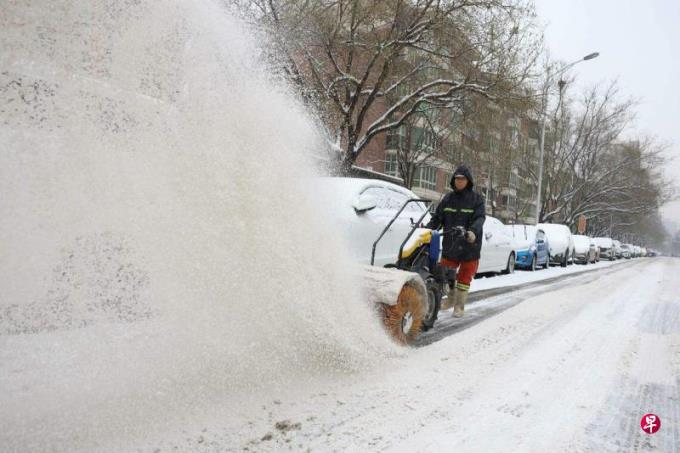
(Beijing Comprehensive News) The strongest cold wave since winter this year has swept Chinese blockbuster regions on Thursday (December 14). Cold air will go south in the next two days. It is expected that the temperature in many places in the north will fall below the historical record.Big reversed.Affected by strong cold air, China's power supply is facing the biggest test since this winter.
Comprehensive CCTV and Bloomberg News, China Central Meteorological Channel issued four warnings: frozen, Blizzard, cold tide, and strong winds on Thursday to cover many provinces across the country.Affected by the strong cold wave, it is expected that from 14 to 17, most of China will cool down from west to east, from north to south, to 12 degrees, and central Shaanxi, north of Shanxi, and west of Shanxi will cool down from 14 to 16 degrees.Northern bureaus cooled more than 20 degrees.
In North China, north of Huanghuai, the minimum temperature in some areas will approach or fall below the extreme value of the same period.According to China Weather Network, in large cities, the minimum temperature of Jinan is expected to be minus 15 degrees below the 16th, and the minimum temperature of Tianjin on the 17th will break the minimum temperature record in mid -December in mid -December.
The minimum temperature in major cities such as Shenyang and Harbin is expected to reach minus 27 degrees.According to the Liaoning Meteorological Observatory, from the 17th to 18th, the minimum temperature in most parts of the province will approach or break through the historical pole value of the same period since 2011.
In many places in southern China, it is as warm as spring in the near future, but the temperature will be reversed in the next two days.Hangzhou's highest temperature on Thursday is 25 degrees, and the highest temperature in Shanghai is 22 degrees. It is expected that after the cold wave effect, the minimum temperature in Shanghai, Hangzhou and other places will fall to zero or fall below zero.
Since the beginning of this year, China has faced extreme weather many times. In January, there was a wide range of extreme low temperatures. Subsequently, ultra -high temperature weather in summer. From July to September, North China, Northeast, South China and other places have encountered strong precipitation.In the flood disaster, some scientists blame this violent fluctuation on climate change.
Reuters reports that Li Yifei, an assistant professor of environmental science at New York University, said: These extreme weather will become part of the normal experience in the future. People need to prepare for themselves because individuals who can obtain resources from the government will get lower and lower.
The strong cold wave swept most of China this time, which continued to increase the power consumption of society, which brought tremendous pressure on the China Power Grid.
China Emergency Management Department posted on the WeChat account on Tuesday (December 12), requiring localities to strengthen power supply, strengthen the monitoring of the operation of the power grid, effectively melt ice and remove ice, ensure the safety of the main network operation, and do a good job in advancePre -reserves of electric coal to ensure the normal power generation of thermal power plants during the critical period.




